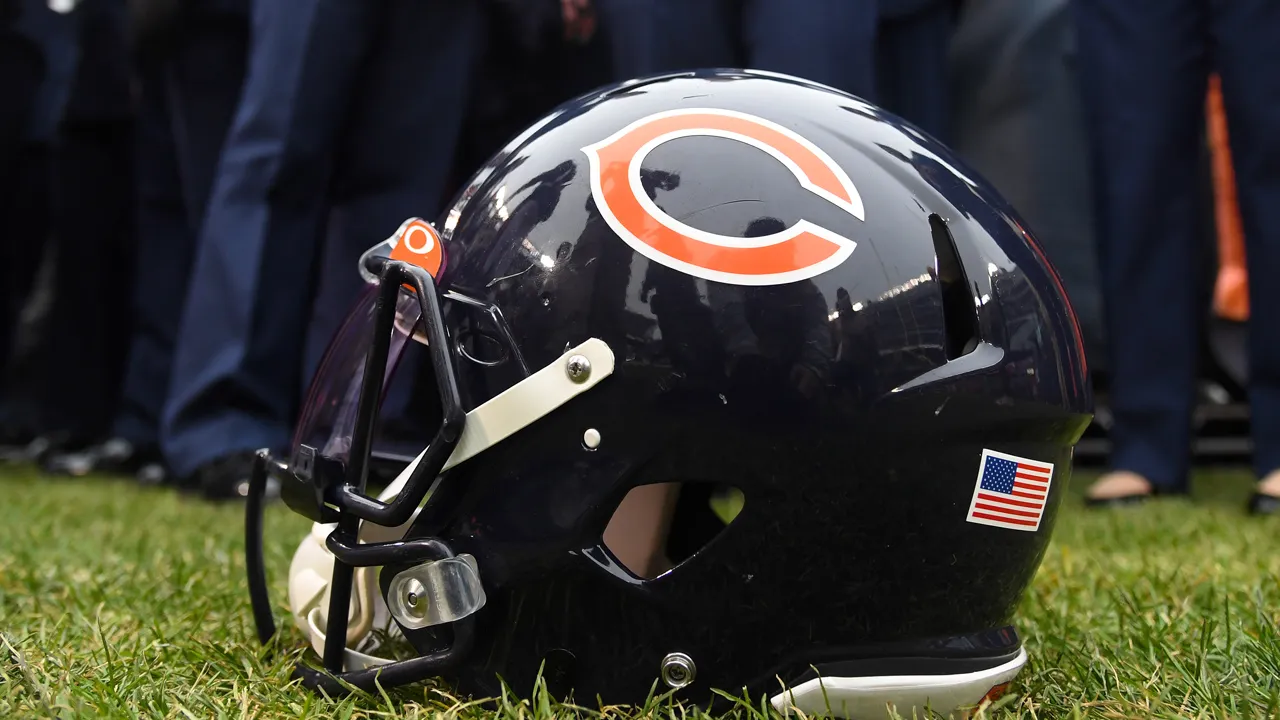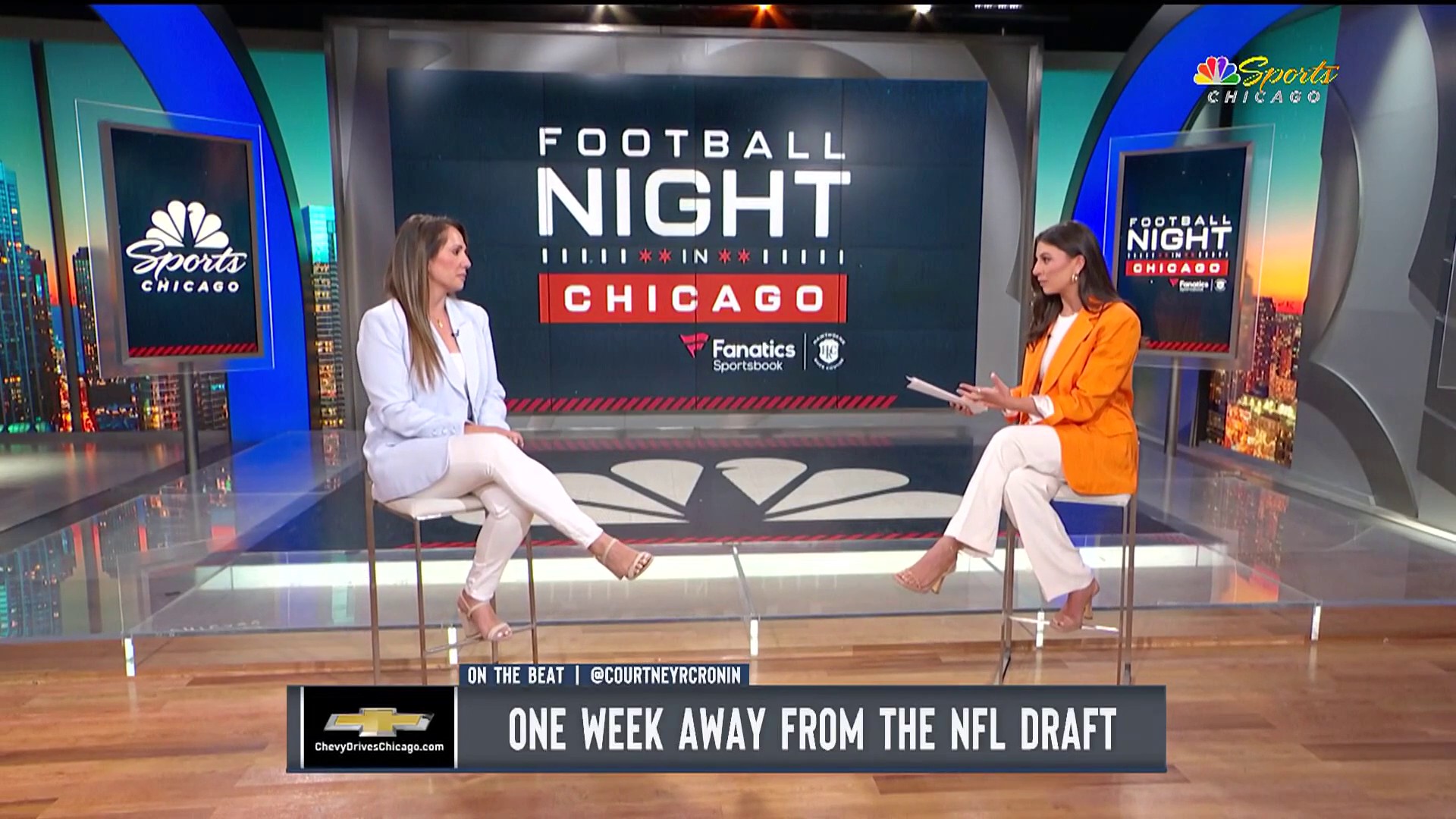The Bears weren’t the only team to score a measly three points in their 2019 opener, but unlike the Pittsburgh Steelers, they weren’t facing the defending Super Bowl champions on the road.
This is an offense that, obviously, has to be better in the team’s final 15 games. But will it?
There are two aspects of Thursday night’s game that, specifically, feel fixable:
Stay in the game with the latest updates on your beloved Chicago sports teams! Sign up here for our All Access Daily newsletter.
1. The run-pass imbalance
Mitch Trubisky dropped back 53 times (45 passes, five sacks, three scrambles) and handed the ball off just a dozen times. Coach Matt Nagy cautioned that some of those passes were the product of RPO decisions, so it wasn’t like his playcalling was necessarily that imbalanced. Still, it was a problem, especially in a game that was within one score for all 60 minutes.
Nagy oversaw this sort of imbalance before, though — the Bears passed on 71 percent of their plays against the Philadelphia Eagles in January’s wild-card loss, a game in which the Bears neither led nor trailed by more than five points. Trubisky completed 26 of 43 passes in that game, though threw for 303 yards with a touchdown (as opposed to his 26/45/228 game Thursday).
In a small sample size last year, Nagy showed a willingness to pass far more than run in similar situations to the one he faced Thursday — down by one score in the second half. The Bears passed 79 percent of the time in those situations in 2018, the third-highest percentage in the NFL, though it was only on 58 attempts. The Bears simply weren’t losing much last year.
NFL
The Bears didn't attempt a running play over Thursday night's final 25 minutes and 30 seconds.
But overall, the Bears passed on 55 percent of their plays in 2018, the sixth-lowest rate in the NFL. Even accounting for Trubisky’s scrambles and RPOs, the Bears were a balanced offense in Nagy’s first year as a coach relative to the rest of the league.
So the point being: While Nagy has it in his DNA to pass, it’s unlikely you’ll again see the disjointed playcalling imbalance that snowballed Thursday night.
“Between (David Montgomery), Mike Davis and Tarik Cohen, those three guys, they're all special when they have the football in their hands,” Nagy said. “I recognize that, I realize that and again, like I said last week, I'm well aware of it.”
2. Being stuck in third-and-long
The Bears’ average yards-to-gain on third down against Green Bay was 9.4, though that factors in the ridiculous third-and-40 the team had thanks to back-to-back-to-back penalties. Take it out and the Bears’ average yards to gain was 7.4, though they needed to gain eight or more yards on nine of their 15 third-down tries.
Being stuck in those third-and-long situations certainly contributed to this otherwise troubling statistic: Trubisky was four of 18 on passes which traveled 10 or more yards beyond the line of scrimmage, per NFL Next Gen Stats.
Those numbers are undoubtedly bad, but Nagy viewed them more as a product of issues before third down.
“We lived in that third and seven, third and eight, third in nine world,” Nagy said. “That's a difficult success percentage for an offense, so we just want to make sure I think trying to, when you do get third downs, to stay in that more third and medium range.”
Nagy acknowledged the Bears not converting a pair of third-and-ones, so it’s not like avoiding third-and-long would’ve solved every issue Thursday night. But going forward, there are two bits of good news here.
First, the Bears in 2018 had the fourth-lowest average yards to gain on third down (6.9), per SharpFootballStats.com. Nagy proved himself to be adept at scheming the Bears into makable third downs.
The second is the Bears, despite being in third-and-long so much, did average 5.7 yards per play on first down Thursday night — right around their 2018 average of 5.6 yards per play on first down. The Bears need to clean up penalties that put them behind the sticks early and do better on second down, but those both feel like fixable issues for this team.
Final words
Addressing these two issues will help Trubisky be a better quarterback, but won’t completely solve the problems that plagued him Thursday night. They won’t take back the pass he had picked off by Adrian Amos in the fourth quarter or get him to connect with an open Cordarrelle Patterson in the third quarter, even if that came on a third-and-long.
Trubisky himself has to be better. To date, he hasn’t proven he can be that guy on a consistent basis over 27 NFL starts, 15 in Nagy’s offense. The majority of the Bears’ necessary offensive improvements lie with him.
But it’s not 100 percent. And the Bears should be able to win the next time their defense stifles an opposing offense if they, at the least, do a couple of things better around Trubisky.
Click here to download the new MyTeams App by NBC Sports! Receive comprehensive coverage of the Bears.


